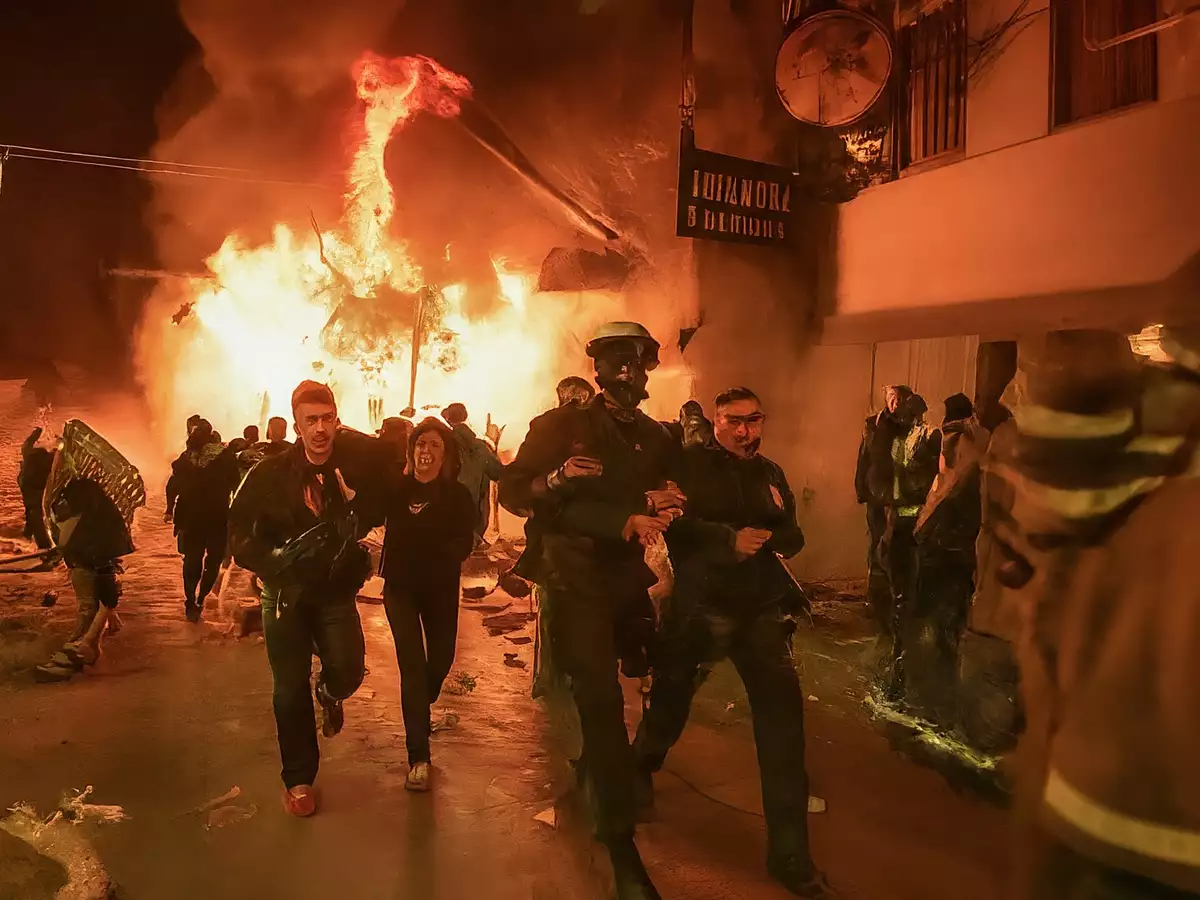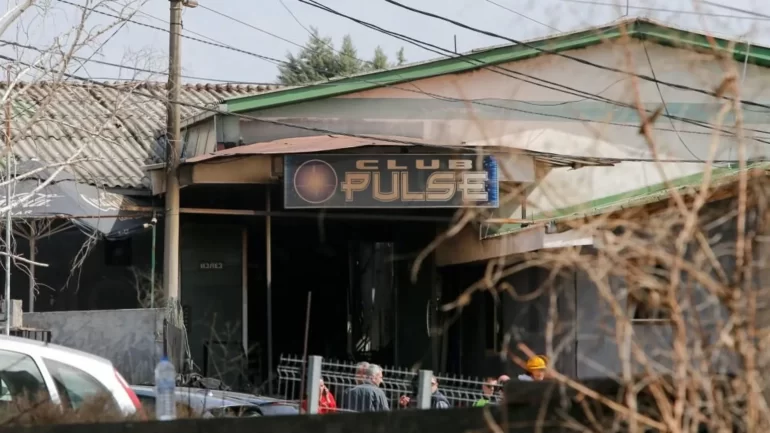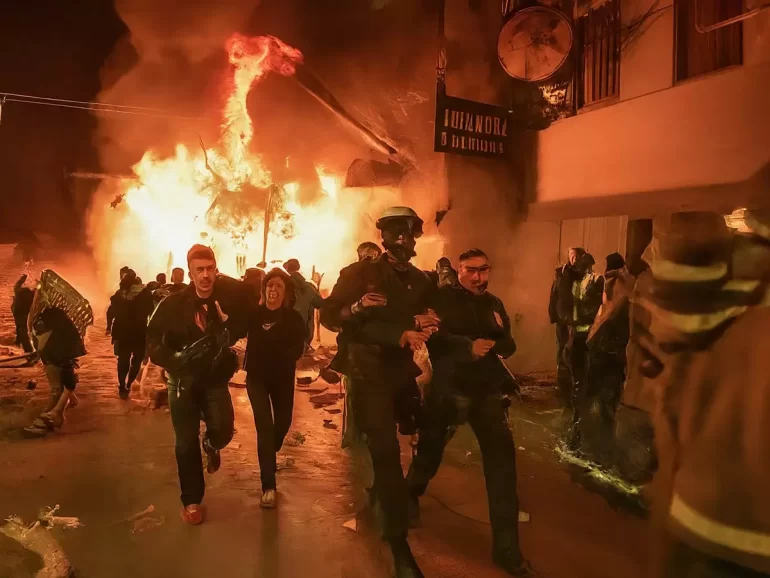
North Macedonia Nightclub Fire: A Preventable Tragedy?
59 Dead in Kocani Blaze Exposes Safety Neglect and Regulatory Failures
A devastating fire at the “Pulse” nightclub in Kocani, North Macedonia, claimed 59 lives and injured over 150 early Sunday morning. The incident, sparked by pyrotechnics during a hip-hop concert, has ignited nationwide anger over ignored safety regulations and lax enforcement.
What Happened Inside the Nightclub?
According to Interior Minister Pance Toskovski, the fire erupted around 3 a.m. as hundreds of young attendees enjoyed a performance by the duo DNK. Flames from pyrotechnic devices quickly engulfed the ceiling and roof, trapping victims in thick smoke and chaos. Officials initially reported one arrest but later confirmed four individuals detained for questioning.
Meanwhile, Health Minister Arben Taravari stated 118 survivors required hospitalization, with neighboring countries like Albania and Serbia offering medical support. Rescue teams faced harrowing conditions, battling the rapid spread of flames in a building ill-equipped for emergencies.
Safety Failures: A Disaster Waiting to Happen?
The tragedy has exposed glaring safety oversights. Boris Georgievski, head of DW’s Macedonian Service, revealed the nightclub operated in a repurposed carpet warehouse—a structure decades old and unfit for large gatherings. Despite this, local authorities granted permits without addressing fire hazards like inadequate exits or flammable materials.
Social media erupted with fury as citizens shared long-standing concerns about the venue. “This catastrophe was inevitable,” one user wrote, highlighting ignored complaints about blocked exits and overcrowding. Consequently, many accuse officials and business owners of prioritizing profit over lives.

Government Response and Global Condolences
Prime Minister Hristijan Mickoski called the fire “a difficult and very sad day for Macedonia,” pledging full support for grieving families. Pope Francis also sent condolences, expressing solidarity through Vatican Secretary Pietro Parolin.
However, public trust remains shaky. Critics demand accountability for permit approvals and enforcement gaps. “How many more must die before regulations are taken seriously?” asked a local activist.
Lessons for the Future: Rebuilding Trust and Safety
This tragedy underscores the urgent need for reform. First, North Macedonia must overhaul building codes, requiring regular inspections for venues hosting large events. Second, stricter penalties for safety violations could deter negligence. Finally, public awareness campaigns can empower citizens to report risks without fear of dismissal.
Survivors and victims’ families now face a long road to healing. Community vigils have emerged nationwide, honoring lives lost and demanding change. As Kocani mourns, the world watches to see if this disaster will finally spark action—or fade into another statistic.

Accusations of disregard for building regulations
According to the head of DW’s Macedonian Service in Skopje, Boris Georgievski, many people have now said on social media that the catastrophe was just waiting to happen, accusing authorities and companies of largely disregarding construction regulations in North Macedonia.
He said the building in which the “Pulse” discotheque in Kocani operated was a very old structure and obviously completely unsuitable for such a purpose.
Previously, the building, located near a residential building in Kocani, was a carpet warehouse, he said, adding that despite this, the building had received a permit from the municipality to be a discotheque.

Key Takeaways:
Enforce Safety Laws: Regular inspections and updated codes are non-negotiable.
Hold Officials Accountable: Transparent investigations into permit approvals.
Community Vigilance: Encourage reporting of unsafe venues to prevent future tragedies.
The Pulse nightclub fire is a grim reminder: safety cannot be compromised. Let it be the last wake-up call North Macedonia needs.

Written by: AIT

Post comments (0)